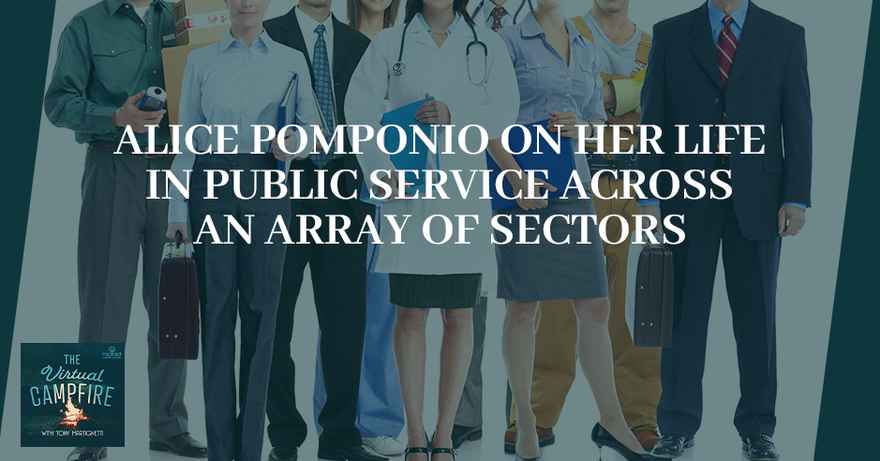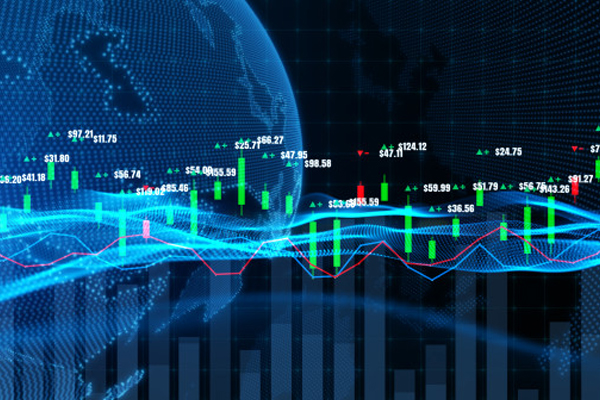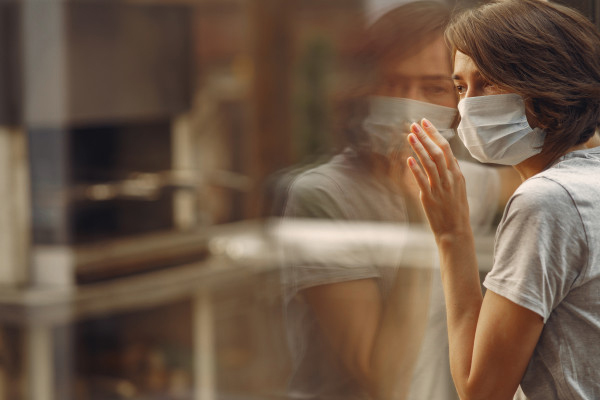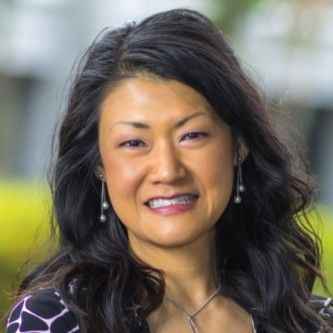Alice Pomponio On Her Life In Public Service Across An Array Of Sectors

Every one of us is called to play a part in public service, helping those in need by sharing whatever we can. Though some are content with just giving what is enough, others go beyond a mile of what they can offer. This is what Alice Pomponio did when she caused several breakthroughs in healthcare, trade, and innovation. She joins Tony Martignetti to share her inspiring story of intersecting beliefs that led to her significant contribution in rare diseases and precision oncology during her time at the American Cancer Society. Alice also explores her amazing work in health technology and equity initiatives worldwide, despite not aspiring to be in such a field when she first started her career.
---
Listen to the podcast here:
Alice Pomponio On Her Life In Public Service Across An Array Of Sectors
It is my honor to introduce you to my guest, Alice Pomponio. Alice is the Managing Director of BrightEdge, the American Cancer Society's philanthropic venture impact fund. Alice brings more than 25 years of experience in Life Sciences and public policy, coupled with her passion for the American Cancer Society's lifesaving mission as a patient advocate and volunteer leader. She's an expert in rare disease and precision oncology, as well as disruptive technology adoption and companion diagnostics. She has an eye towards value-based care, which is important in this day and age.
Prior to ACS BrightEdge, she was an Advisor at Red Sky Partners and the Founder and Managing Director of Accendo. At Red Sky Partners, Alice advised high-growth, life sciences and health tech companies on go-to-market and product value strategies. She previously held strategy and operational leadership roles at Radius Health, AstraZeneca, and Sanofi Genzyme, where she had launched multiple US and global specialty products and championed orphan drug and health equity initiatives across the globe.
Her public sector experience spans innovation, trade, and healthcare policy through roles in the UK government and the US Office of Management and Budget. She lives West of Boston in a historic house that was built in 1818. She achieved the monumental milestone of climbing all the New Hampshire White Mountain 4000-footers. Kudos to you, my friend. That's amazing.
---
I want to welcome you to the Virtual Campfire, Alice.
Thanks. It's great to be here.
I'm excited to have you on. You and I have known each other for many years. We are former Genzyme colleagues. I've had the fortune of seeing you do many great things over the years and make such an impact on many lives.
That's kind of you. You're so generous. You too, Tony. I can't believe your career transformation. You're an inspiration to me.
Thank you so much. Here we are, we're going to share your story. Along the way, we're going to see what you're doing now and how that's making an impact on people's lives even further. The way we're working on the show is we're going to tell your story through what's called flashpoints. These are points in your story that have ignited your gifts into the world. The way we're going to do that is we're going to have you tell your story, pause along the way, and see what's showing up with themes, things that we want to recognize along the way. With that, we'll give you the floor. Take it away, Alice.
You can't appreciate all the different facets and perspectives until you've actually had those lived experiences.
That sounds awesome. What a feeling. It's flashpoints, not Flashdance. This is great. I think what you're doing is awesome. It forces many of us to go inward and go there to consider and reflect on where life has taken us and where we still want to go. How do you want me to start?
What was a moment that revealed who you are now? Maybe there was a moment early on in your life that you noticed, "This is where I wanted to go. This is how I wanted to make an impact in life," when you think back to your past.
When I was thinking about coming onto the show and then you had asked about defining pivot moments, my entire career has been a series of pivots. I'm not a sailor, but I did take a sailing class once in college. I know this tacking mechanism, where you go left and then right, and eventually, you get to where you want to go. Ever since I was little, what I realized is we move a lot. When I was a kid, we moved every 2 to 3 years. Middle school was probably the only place where I started and finished school with the same set of friends and their girlfriends to this day. Those were my goony years. I love them.
I think what it taught me to do was be super resilient when I found out we were getting up and moving again, but also to adapt and form new relationships. It became an opportunity to reinvent myself every time. Not everybody has that opportunity. It probably was foundational to how I approach life in general and my career because I'm so compulsively curious. It's a good thing that I was always able to pick up and explore new places.
We lived in New England, Canada, Texas, and California and then I've moved back to New England. This is the longest that I've lived in any one place. I've been here for many years. When you read out my bio, you saw that I've moved between the public sector, private sector, big pharma company, government, and now I'm in the social sector and nonprofit, working in a traditional for-profit fund model. I think it's consistent with where how I'm hardwired.
Those themes of resilience and adaptability are important, especially to see that started at a young age with the movements and what have you. When you were that age, did you have a feeling of, "What do I want to do? What do I want to be?" What was your dream at that point?

It sounds horrible. I knew I didn't have the platform to express myself. I'm a First-Generation American-born Taiwanese. I grew up in a very traditional immigrant household where we did not have a lot of choices. We were obedient to parental authority. To be honest, I had not done as much reflection. Now, I've got a son who's looking at colleges. I'm almost the pendulum swung completely in the opposite direction because I keep asking him, "What does he want to do? What is he passionate about?" Partly because I was never asked that myself. It was through a series of life experiences in my own journey that I eventually found my own voice and was able to express that.
I do remember there were very distinct moments in my upbringing. Again, academics were so important in my childhood and excelling whether it was in school competitions or in the colleges that we got into. I was always the kid who was the social kid. I was forming clubs and selling bookmarks. I had a friend who lived around the block, let's call her Lily, whose parents had divorced. She was living with her uncle and grandmother. I was always on about like, "Lily this, Lily that. Can we have Lily for dinner? Who's going to take her to whatever event?"
I remembered my dad once saying, "Do you think she thinks about you as much as you do her?" It was such a blow. It forced me to harden in a way that I never thought. I never appreciated until many years later, realizing that desire to help others, have empathy, and want to connect. I was a strength of mine, but I was suppressing it for so long. Now, I feel I'm in an environment and also in a professional environment where it's something that's supported and welcomed. It's part of what has made me successful throughout this journey.
It's such a great insight because there are so many people who go through that stage, whether it's because of family upbringings and things like that create that because of, "It's the way I am. Am I not the right way? Am I not the right person? Am I not enough?" Luckily, we shed some of that along the way and realized that some of the things that we see as wounds or things that are weaknesses are actually our strengths if you look at it the right way. I'd love to see how that transpired as you got into university and beyond. What got you lit up into this world of being in life sciences and what have you?
I probably did more of my learning just by doing, to be honest. I went to MIT here in New England. That was what brought me to Boston. I dove off the deep end when I went to Science. I was a good Science student, but pretty much by my freshman year, I realized I could go through the classes and make the grades. Of course, of all the majors I chose, it was pre-med, which was ultra-intense. I was fortunate. I joined an alternative freshman learning community called Integrated Studies Program at MIT. It was about 50 of us. It was a program around Technology and Society. Basically, History of Science and History of Technology but taught through these immersive modules, where we were learning about Samurai sword making. We would go into the basement and do blacksmithing. We took apart carburetor engines and raced them around where the state of center is over the Whitehead Institute.
With every job transition, there is an entirely new set of learnings and opportunities to stretch and grow.
It made learning fun and it was learning through a community. I'm co-authoring a book about this program with Professor Arthur Steinberg. He's a professor emeritus at MIT. It truly was open innovation, open learning, pre-digital. During COVID, we're all struggling with what that experience of learning should be when you're there in person and in the community. That helped me break away from the oppressive, didactic, regimented academic career that I had been destined towards. From there, I became much more open about how I was interested in the students rather than the Science itself.
I ended up luckily going abroad for the Rotary Ambassador. I was selected as a Rotary Ambassadorial Scholar. I went to England and studied Victorian and Shakespearean Literature. I took a break from life sciences. I came back and said, "I don't know if I want to do an MD-PhD program." Thank goodness for David Page, who was my advisor at the time. He then went on to head up the Whitehead Institute, who pointed me in the direction of public policy and the Harvard Kennedy School. That was the trajectory from then. I built my career at the moment in real-time. Now, I also teach part-time Biomedical Innovation at MIT. It's been a great ride being open to opportunities.
It's funny you said that because you came back to that sailing analogy where you were talking about going to the left and then to the right. Even in our conversation earlier, before we got started, we had a little conversation around the path is not always what everyone expects it to be. When you described playing with Samurai swords and that hands-on experience, those are so different than your normal path. Going on to study Literature makes you more into that eclectic person who can see things from different angles.
I love that because there's something about the people who think differently who take a view of the world not just as, "I'm only the artist. I'm only the scientist. I'm only the business person." In fact, you're all those things, but you chose to see the world at that point through whatever lens you decided to adopt, "What is the problem you have in front of you? How are you going to view that problem? Which hat are you going to wear at that point?"
This term intersectionality, when I learned it, speaks to me because I feel that, for many, they are single-story people. You just don't know it. You can't appreciate all the different facets and perspectives until you've actually had those lived experiences, to be honest. I don't think I would have opened new doors had I not stretched myself, taken risks, and taken on different roles, even in particular what I thought were known environments or organizations. I have always been the outlier within different groupings.
I would have to credit Rotary from the get-go when I had been selected as a US Ambassadorial Scholar to England. The whole notion that they chose an Asian-American to represent the United States to go abroad was already huge but it also meant that I was constantly on my toes having to connect, interpret, and build bridges. When I was in life sciences, I was in strategy roles doing policy and pricing reimbursement in a scientific profession, but doing perhaps a non-traditional, functional role. Similarly, now I'm in the social sector and nonprofit doing a business role. I honestly think that when you have that level of conflict and stretching, you have a much deeper, richer experience. People like me who maybe are at this weird crossroad who embrace intersectionality thrive in those settings.

You described it that way. That’s what makes the world so beautiful. It’s when you have people who can bring their unique perspectives, confident, and courageous enough to be able to show up and share their point of view in that space. You could have easily said, "No, I'm not comfortable. People like me don't show up in these rooms or don't show up in these spaces. I don't want to be the one who sticks out," but you didn't. You decided that, "This is not how I'm going to show up. I'm going to show up," and you did. That's what makes it so amazing.
You probably know a lot. Many names are given because of the parents' aspirations for the child like Hope or Charity. In Chinese names, you can quickly determine what the parents' hope is for the child. My Chinese name is Lin, which is the family name. It means forest. When we introduce ourselves, we would say Ming as in ming guang, which means moonlight or brilliance, and then Kwei as in Tu Kwei, which is engineer. My father already had this concept of, "I hope this kid is academically bright, but if not, she'll be a good worker. Hopefully, she'll be attracted to whoever will want to partner with her for life." It gets back to that theme of blending Science with compassion, creative with practical, and micro with macro. I love those intersections. I wish we did more of it.
What were some of the other challenges that you faced along your journey? You've got yourself into some amazing spaces. What was another point in your journey that you felt like, "I need to try something different? I need to do something different with my life?"
To be honest, a lot of it was being open to new opportunities as they arose. When I first started off in my career, I had come out of the Harvard Kennedy School. I went and worked in DC at the Office of Management and Budget looking at the Human Genome Program. That was amazing trying to understand the regulatory environment and how big Science was funded with taxpayer dollars, but it was so process-oriented. It was in many ways lagging behind what the industry was doing in terms of pushing the envelope and driving forward new discoveries.
When I came to Genzyme, I remember thinking, "I want to work on Science policy." The EVP I interviewed with at the time said, "We care about genetic privacy and all that stuff, but we care about getting paid. You're going to learn reimbursement, coding, and billing." I could have easily said, "No, that's not what I'm about. Forget it," but I'm so grateful I did it because that was how I cut my teeth in health policy. I learned all of my health policies on the job at Genzyme.
When I was given the opportunity to do business development then and work on sourcing ex-US deals, that was when I got exposed to all of the worlds of commercial service, trade, and economic development. When the UK government came and said, "Would you advise us on how we could create a world-leading life sciences cluster?" I was like, "Sure. I know enough to be dangerous. Why not?" That opened up not healthcare policy but even domestic terrorism policy around animal rights activists, taxation levels, workforce development, how to build infrastructure around universities and hospitals to create high-paying jobs, and how to make that accessible to different parts of the countries so that everyone had a similar economic opportunity.
60% of tech companies that try and go into digital health aren't successful because they underestimate how complicated healthcare is.
Coming back to the industry, Genzyme had asked, "Now, you've had exposure to other healthcare systems. We're growing internationally. Can you help us understand what this thing is? Health technology assessment, cost-effectiveness, what does that mean biosimilars?" As you know, the team at Genzyme then helped to get orphan drug legislation introduced in many markets. That, in some ways, built the Specialty Drug Marketplace. Not limited to rare disease oncology has benefited from it as well.
From there, the Science policy at AstraZeneca was thinking about how do we make pharmaceutical R&D more efficient. How do we adapt and embrace open-innovation platforms, do things through collaboration, maybe even in pre-competitive ways and use that shared experience to change regulatory frameworks? Because we have to follow the science, we can't cling to these arcane ways of testing for safety and efficacy, which has modernized the way that we do drug development. I was back in a small startup company, trying to launch a product at Radius but in women's health, where the barriers were not scientific or technical.
Osteoporosis is one of the few diseases that women are honestly in denial about because they are so saddened that it signals that they are aged. Patients knew that they were at high risk of fracture. They were just in denial. The barriers were psychosocial. They were not medical in the same way that we would have seen for rare diseases. I mentioned that because with every job transition, there was a completely new set of learnings and opportunities to stretch and grow. What I experienced as a child moving geographically, my clock would go off and I'd say, "Now, it's time for another challenge."
Hearing your story is funny. I get the sense that they all build on each other so well in the sense that you are ready for each challenge because they've built on what you've gained. In each point, dare I say it, you were at the forefront. You were a pioneer in all those different areas because at the point when you were in these fields, they were all relatively new or they weren't fully developed. You were being called in to be a person to help lead the front, which is powerful and deserves a lot of credit for that.
I know there are more people involved too, but at the end of the day, to be there and be around that movement is cool. What else I find interesting is that those who are not initiated in this space to know how important it is. You can expound on this a bit more. How important it is that all of this policy work happens? Without this, the access to medication, the access that the person who gets these medications and therapies wouldn't happen the way it would happen.
Different members of our industry have different attitudes towards policy. Sometimes, it gets mixed up with politics. Sadly, that is the way that we make policy in many countries around the world. There's no question that policy plays a critical role in shaping the marketplace and our environment. Even at the American Cancer Society, we have one of the most visible and largest advocacy organizations, the American Cancer Society Cancer Action Network. That was how I started volunteering with ACS. It was because even by working in policy within the industry, I knew there was a much broader agenda that I wanted to tackle.
I think you know that my big flashpoint or pain point came in 2009 when I was a successful biotech executive professional. My mother passed from undiagnosed colon cancer that could have easily been diagnosed. It could have been treated with the standard of care. She had symptoms, but she chose not to get care because she was scared of what it would cost. That is the tragedy of our healthcare system. For me, now what I would say, it was pain. I have now transferred that into purpose, but it was a rude awakening that we need to have system-level thinking. We can't continue to just innovate in that safe space. We need to bring some of that to other areas where there are even greater needs because we're not all benefiting from technical and scientific innovation. A policy can help there for sure.
It's a catalyst for a lot of those changes to happen. It helps to move things along and get people to access it even quicker. I can't thank you enough for the things you've done to make all that happen because there are so many lives that are impacted by the work that you and your colleagues have done. I would love to ask one more question. What is it that gets you excited about the work you do when you look back and say, "This is what wakes me up every day?"
I feel like the most exhilarating and challenging job of my entire career is how do we bring about both internal and external system-level changes working through the social sector. I truly and still in love with the American Cancer Society even I was a staff person before I was a volunteer because we need organizations that are thinking about how do we fill these system-level gaps. What is that sustainability agenda? How can we not leave people behind? There is a sustainability challenge for nonprofits too, because the current revenue funding model for charitable organizations is precarious. COVID showed us that society was devastated when it couldn't go through traditional fundraising through events and had to stop its research grantmaking for the first time in its history.
You're talking about an organization that has invested over $5 billion in cancer research since its founding of 49 Nobel laureates. This aftershock of COVID will be felt by cancer patients in another 50 years because those discoveries will have been starved for 12 to 18 months. That keeps me up at night. I think of the startup companies that are doing tremendous work in tech, not being guided, shepherded, and supported with healthcare know-how early on. That frustrates me because 60% of tech companies that try and go into digital health aren't successful because they totally underestimate how complicated healthcare is.
The society in BrightEdge can help them. Even our traditional drug discovery and diagnostic companies, knowing what I know from the work we did at AstraZeneca and Sanofi Genzyme, we need to bring some of that late-stage thinking early. We need to begin understanding what patient-provider payer barriers are and incorporate that at a point early enough in product development where it's easy to make the right choice. Hopefully, that will one day lead to products that are designed to be more accessible and patient-centric, which might include not getting sick, to begin with. That's okay, too. That's a good thing.
It's funny because this comes to your absolute wheelhouse because we started this conversation around your ability to advocate for people and connect with people through a conversation. Now, there's an amount of bridge-building that needs to happen and more conversations with people from different places. You're in the perfect spot to make that impact.
Thank you.
I want to ask one last question, a very different question than the others. What's one book that has had an impact on you and why?
I did a lot of reading as I was going through my investment interval when I chose to transition from traditional in-house for-profit work. I was looking for something different to make a difference. I have to say, the book that I still love and reference all the time is The Book of Joy by Dalai Lama and Archbishop Desmond Tutu. That was a tremendous not only their friendship but also their life lessons. The one thing that I remember taking away from it was, "Happiness and joy are not the same things." A mother who just gave birth could be in extreme pain, but she will be joyful. That gives me the grounding and hope to survive what sometimes feels like still very dark periods to find joy, know what that means, how it can mean very different things, and have that prism of emotions that are so nuanced. It was such an awakening. I highly recommend it to anyone who has got some spare time and looking for joy.

I love that recommendation. I love that book. That's the first time that's been mentioned on this show. I am so thrilled that you brought that into space. Alice, this has been so enjoyable. I can't thank you enough for coming into this space and sharing all of the things you've done and your insights and stories. Thank you.
I did grab a piece of paper off of my dresser upstairs. I mentioned to you that my mother, when she passed, had all of her favorite fortunes that she put in this little jar. One of them, I thought of you. I'm going to share a couple with you. One was, "Listen attentively. You will come out ahead." Clearly, you do that, Tony, through your show. For me, it said, "You will soon be honored by someone you respect." Those were two that were on her list. I could keep going on and on because they were all great. I keep these on my dresser. I'm so grateful for our friendship and for you impacting so many lives in this way. Thank you for having me.
I'm so honored. Honestly, I'm glad to have you a part of this community to help make an impact on other people's lives through this show. I know that your messages are going to hit somebody and they're going to say, "That's what I needed to know now." Thank you for coming on. One last thing before I forget, where can people find out more about you if they wanted to reach out and have a conversation?
You can always reach out to me at the American Cancer Society. Also, I'm on LinkedIn. I'm so happy to receive messages and get in touch with people in that way.
Alice, thank you again. It's been such a pleasure. Thank you to our readers for coming on the journey.
Important Links:
About Alice Pomponio
 Managing Director of the investment team at BrightEdge — the ACS’s mission-driven venture capital fund
Managing Director of the investment team at BrightEdge — the ACS’s mission-driven venture capital fund
Alice brings an extensive experience in life sciences and business, coupled with her passion for the American Cancer Society’s lifesaving mission.
She is an expert in rare disease and precision oncology, and focuses on disruptive technology adoption and companion diagnostic/therapeutic co-development strategies with an eye toward value-based care. Most recently, she was an advisor at Red Sky Partners LLC and the founder and managing director of Accendo. At Red Sky Partners, Alice advised high-growth life sciences and health tech companies on go-to-market and product value strategies. In 2018, she founded Accendo to accelerate entrepreneurial consumer-facing approaches to patient access and affordability of quality care.
She held prior strategy and operational leadership roles at Radius Health, AstraZeneca, and Sanofi Genzyme, where she launched multiple US and global specialty products and championed orphan drug and health equity initiatives across the globe. Her public sector experience spans innovation, trade, and healthcare policy through roles in the UK Government and US Office of Management and Budget.
Alice holds a Master of Public Policy from Harvard University and a Bachelor of Science in Biology from MIT. She serves on the Boards of Massachusetts Biotechnology Council, MassEcon, and PhagePro Inc. Additionally, she is a faculty member at Harvard-MIT HST Sloan Healthcare Ventures, a role she will retain during her tenure with the American Cancer Society.
In addition to her industry experience, Alice is a longtime American Cancer Society and American Cancer Society Cancer Action Network volunteer leader.


0 comments
Leave a comment
Please log in or register to post a comment